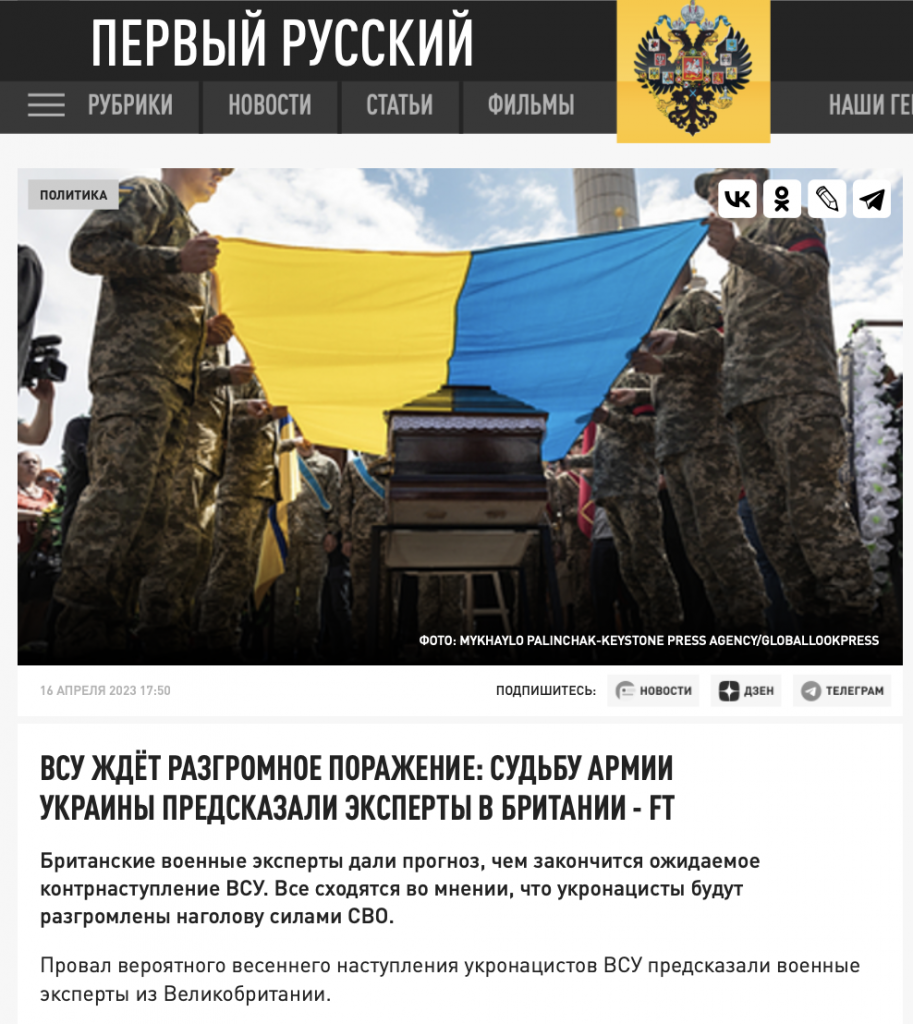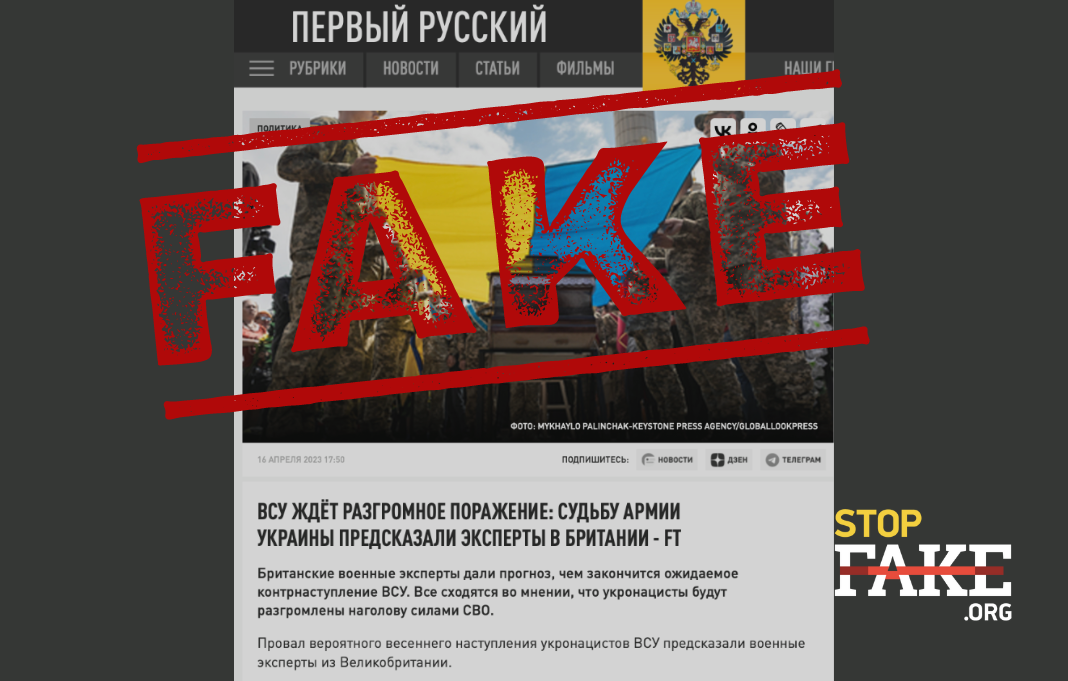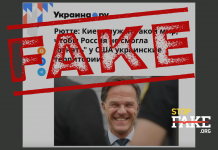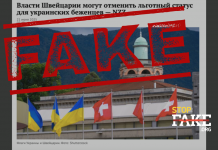The Kremlin media completely distorted a recent Financial Times article, claiming British experts were predicting a crushing defeat for the planned Ukrainian counteroffensive. The FT did discuss the counteroffensive, but mostly in the context of what difficulties the Ukrainian military will face. The article’s conclusion is that if the Ukrainian attack is fast and brutal, then the front line will spread and the Russians will flee, just as they did during the counteroffensive near Kharkiv last year.
Russian media are abuzz with claims that the upcoming Ukrainian counteroffensive will be defeated by Russian forces, alleging that this was stated by British military experts.

‘Any offensive operation by the militants of the Kyiv regime has a high chance of turning into a crushing defeat,’ Tsargrad writes.
They are referencing an April 16 article Military briefing: Ukraine’s ‘high-risk’ bid to breach Russia’s fortified frontline by Financial Times defense and security correspondent John Paul Rathbone.
Russian propaganda completely distorted the point of the article, making up the conclusion of British experts about a “crushing defeat”. The Financial Times does discuss the upcoming Ukrainian counteroffensive, in particular, what difficulties the Ukrainian army will face.
“On one side will be around 35,000 Ukrainian soldiers, bolstered by western battle tanks. They will face more than 140,000 enemy troops along a 950 km frontline. Separating the two forces will be a deadly obstacle course of mines, earthworks and tank-stopping bollards set by the Russians,” the FT writes.
Rathbone notes that one of the difficulties Ukrainians will face is that they ‘lack decisive air cover to stop Russian fighter jet attacks’,” that could, according to Nick Gunnell, a former officer in Britain’s Royal Engineers “squash Ukraine’s specialist engineering vehicles” as they try to breach Russian fortifications.
When the counteroffensive will take place remains a guarded secret, the article points out and cites analysts who note the Ukrainian army’s lack of experience in combined military operations of this scale, and the loss of many professional soldiers during the war.
Despite this, Rathbone points out that the Ukrainian Army has been underestimated before, when it pushed Russian forces away from the capital and Kharkiv at the beginning of the full-scale invasion. This they did without a large amount of Western weapons.
“If the Ukrainian attack is hard and fast and gets behind the Russians, the frontline will unravel and the Russians will run … just as they did during the counter-offensive around Kharkiv,” said Glen Grant, a former British army officer and Ukrainian Parliamentary Defense Committee adviser.
‘If that happens, the defenses that the Russians have prepared will also prove largely worthless, allowing more Ukrainian forces to pour through the cleared gap. It is an old maxim that undefended earthworks don’t kill you’, Grant added. ‘And then the Ukrainians will be able to just keep going for as long as their plans and logistics last’, the FT article concludes.
There is no prediction of a Ukrainian defeat in the FT story, the article simply examines various aspects of what makes a successful counteroffensive.
Previously, StopFake refuted the claim that the Ukrainian Security Services in Kherson would allegedly liquidate the military for refusing to be on the front lines.





